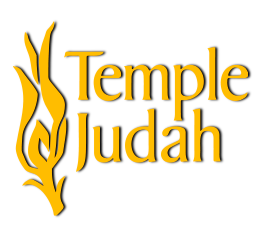In the Talmud there is a story about a poor country woman who had no food to give to her many children. One day she found an egg and told her children that their worries were over. “I will take this egg and ask the neighbors if we can put it under their hen until a chick is hatched. We won’t eat the chick, but we’ll set her on other eggs until they hatch into chickens. They, in turn, will lay many more eggs, and we’ll hatch them into chickens as well. Then we’ll sell some of the chickens and the eggs and buy a cow, and raise the cow until she bears calves. Then we’ll sell some of the calves and buy a field. Then we’ll have a field, and cows, and milk, and chickens, and eggs, and we won’t need anything anymore.”
As she was speaking and excitedly thinking of all the things she would be able to do because of this one egg, it fell out of her hands and broke; shattering all of her hopes for food and dreams of prosperity.
Rabbi Chaim Sanzer teaches that each of us resembles the woman in this story. When the days of repentance arrive, most of us resolve to do this and to do that; we make elaborate plans to rectify so many things that we know need to be changed in our lives. Yet the days slip out of our hands, the urgency to repent slips out of our hearts, and thought does not lead to action. We remain exactly as we were the year before (from Rosh Hashanah Stories and Parables, by Aaron Levine).
During the Days of Awe we all have the opportunity to make teshuvah. It is appropriate that we call the act of repenting, teshuvah, because the word means to turn, or to re-turn. Some scholars say that we are returning to God during this time. Others believe that we are turning back to ourselves. Either way, we must recognize that we have strayed from the right path, the one that leads to “life and prosperity.” On each Rosh Hashanah, it is as if we have returned to the beginning; to a time when the sins and transgressions of our past are forgiven so that we can start the new year fresh, with a clean slate. Yet, as in our story, we tend to make resolutions on which we can never follow through. We atone for the same transgressions that we atoned for the year before and say that next year we will do better. We will try harder, we will pay more attention to all of the “important” things, we will be better human beings. This year is the year for change. . .
Throughout the prayerbook during the High Holy Days, God is seen as a parent. Someone, something, or some force, that keeps records of our actions and puts weights on a scale. One weight for every good deed on one side of the scale, and a weight for every transgression on the other. Hopefully, the good will out weigh the bad by the time we reach Yom Kippur and luckily, we have the power to control where those “weights” go.
Rabbi Yochanan taught that three books were opened on Rosh Hashanah: one for the wholly righteous, one for the wholly wicked, and one for the folks in the middle. The wholly righteous are at once inscribed in the book of life; the wholly wicked are at once inscribed in the book of death; and the rest of us are held suspended from Rosh Hashanah until Yom Kippur. If we are found worthy, we will then be inscribed for life.
May the New Year be a good year for us. May our lives be filled with laughter and joy. May our world be filled with peace. May we all be inscribed for life.
I wish you all a happy, healthy and sweet New Year.
L’shana tova tikateivu.
Rabbi Todd

